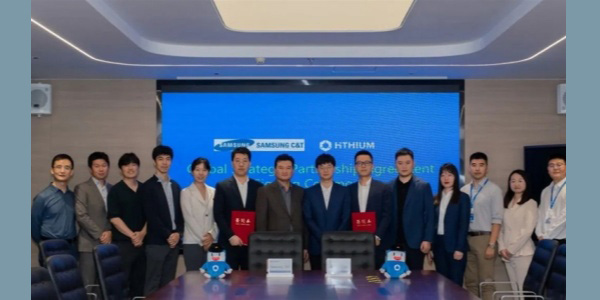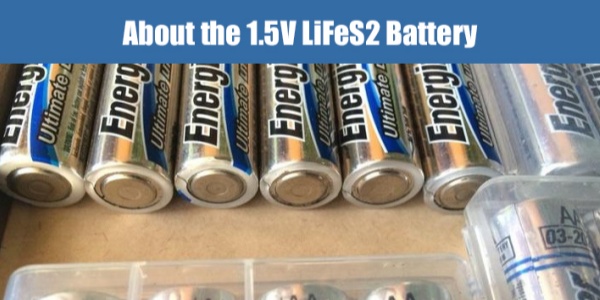Explore the Advantages of the Energizer L91 Ultimate Lithium AA battery
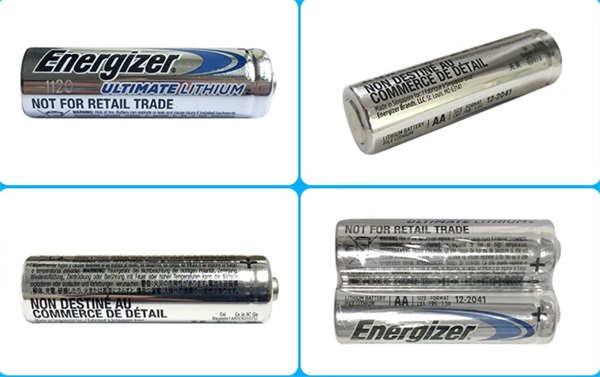 The Energizer L91 Ultimate Lithium AA battery is a 1.5V disposable lithium iron (Li/FeS2) battery, model L91, also known as 15-LE, FR14505, or FR6. It can replace alkaline AA batteries, carbon zinc AA batteries, and rechargeable AA batteries, making it highly versatile. Today, let’s discuss the advantages of the Energizer L91 Ultimate Lithium AA battery and its alternative energy solutions.
The Energizer L91 Ultimate Lithium AA battery is a 1.5V disposable lithium iron (Li/FeS2) battery, model L91, also known as 15-LE, FR14505, or FR6. It can replace alkaline AA batteries, carbon zinc AA batteries, and rechargeable AA batteries, making it highly versatile. Today, let’s discuss the advantages of the Energizer L91 Ultimate Lithium AA battery and its alternative energy solutions.
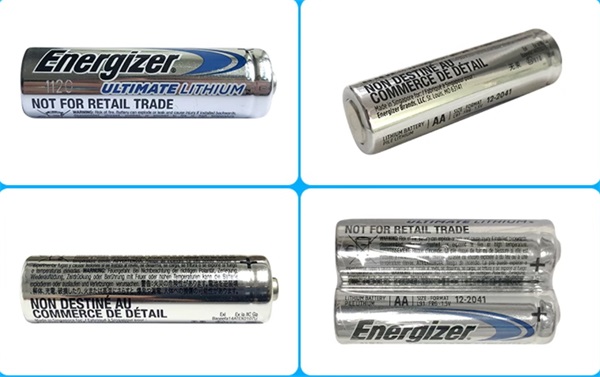
Advantage 1:
Safety: The Energizer L91 uses a temperature-responsive PTC (Positive Temperature Coefficient) as a resettable fuse, along with full-foil current collectors and thermal response separator technology, allowing the battery to meet explosion-proof standards. It is classified as a high-safety level explosion-proof battery: intrinsically safe (Ex i II CT4). The Energizer L91 Ultimate Lithium AA battery is truly an explosion-proof AA battery, widely used in fields such as gas, mining, chemicals, pesticides, LNG, LPG, military, aerospace, and more. It is used by NASA and various military organizations worldwide.
Advantage 2:
100% Leak-Proof: The Energizer Ultimate Lithium AA L91 battery features a special internal structure and materials with a no-electrolyte design, making it truly leak-proof. This is different from alkaline batteries, which are primarily made of zinc, manganese dioxide, and potassium hydroxide solution. The chemical reaction in alkaline batteries fundamentally cannot prevent leakage; it only varies in the amount of leakage.
Advantage 3:
Long Lifespan: This battery has a shelf life of up to 25 years. The L91 uses lithium iron disulfide (Li/FeS2) chemistry, which is more stable than traditional alkaline batteries and has a lower self-discharge rate, allowing it to retain its charge for an extended period. It can operate stably in extreme temperature ranges (-40°C to 60°C) and offers excellent low-temperature performance, making it durable and long-lasting in various environmental conditions.
Advantage 4:
Low Temperature Resistance: The Energizer L91 AA battery can withstand temperatures from -40°C to +60°C, while typical alkaline batteries can only handle temperatures as low as -18°C. This battery can function normally at -40°C. Below is a low-temperature test of the Energizer L91 AA battery:
We took thirty brand-new Energizer L91 batteries and tested them under different temperatures and discharge currents to observe the effect of temperature on capacity. The discharge currents were set at 25mA, 250mA, and 1000mA, with constant current discharge. The temperatures were set at -40°C, 30°C, -20°C, -10°C, 0°C, 10°C, and 20°C, and we compared the test results under these different conditions.
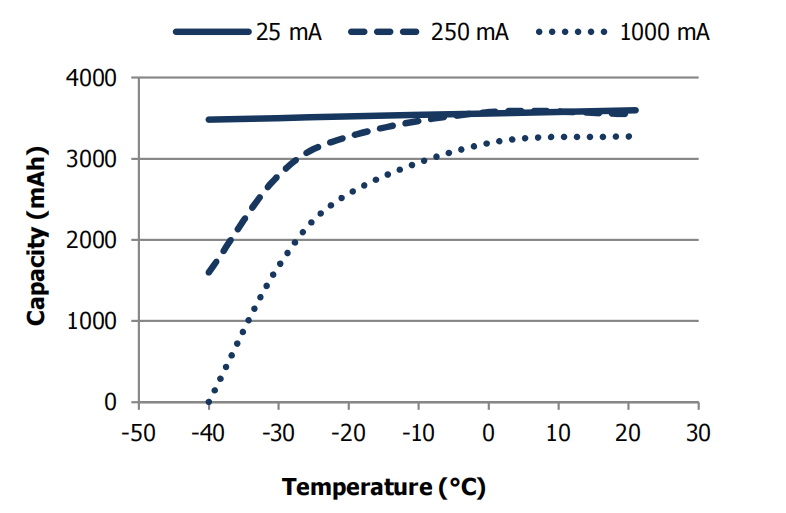
Through the results we found that the low temperature resistance of the battery is very good, in the extreme low temperature conditions of minus 40 degrees Celsius, 25m constant current discharge, the capacity is almost unaffected, 250mA constant current discharge conditions, the capacity is still as high as 1600mAh. Under the low temperature condition of minus 30 degrees Celsius, the performance of 250mA constant discharge is significantly improved, the capacity is as high as 3000mAh, and the super-large current discharge of 1000mh can also reach 1700mAh, and the performance of the battery is gradually improved with the increase of temperature.
Advantages 5:
Voltage stability: we know that alkaline battery with the use, the battery voltage will drop rapidly, and Energzier L91 voltage stability, will not lead to a rapid drop in voltage with the use of specific can see the following constant discharge voltage test obtained from the discharge voltage curve.
Three new Energizer L91 batteries of the same batch were discharged with different discharge currents of 1mA, 10mA and 100mA. The discharge test results are as follows:
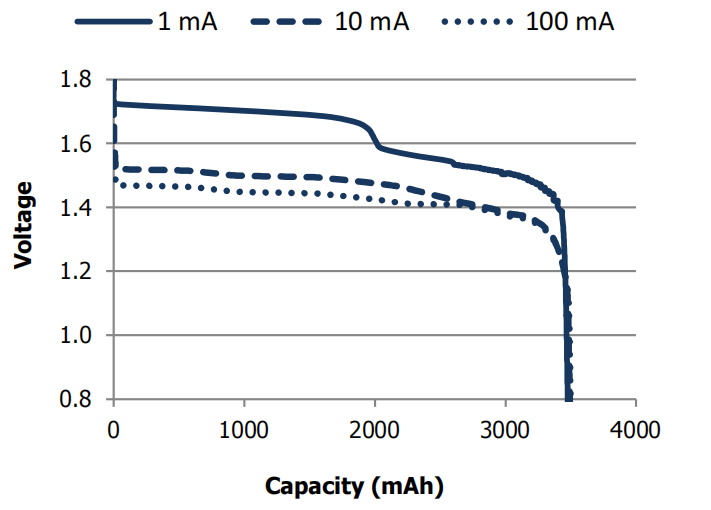
Through the graph, it is obvious that the battery is obviously different from the alkaline battery, the voltage is very stable, until the power is almost completely discharged, the voltage begins to decline rapidly from about 1.4V, and the voltage is stable above 1.4V most of the time, the result is very satisfactory.
The Energizer Ultimate Lithium AA L91 battery has many advantages and is widely used. While it offers excellent quality, this battery is relatively expensive, costing several times more than a standard alkaline AA battery. If you are considering various factors, we can also recommend high-quality alternatives to the Energizer L91. These alternatives have similar specifications, provide a stable 1.5V voltage, high energy density, long shelf life, and a wide temperature range. They can meet your needs while also fitting within your budget. If you are interested, please contact us, and we will be happy to assist you.
